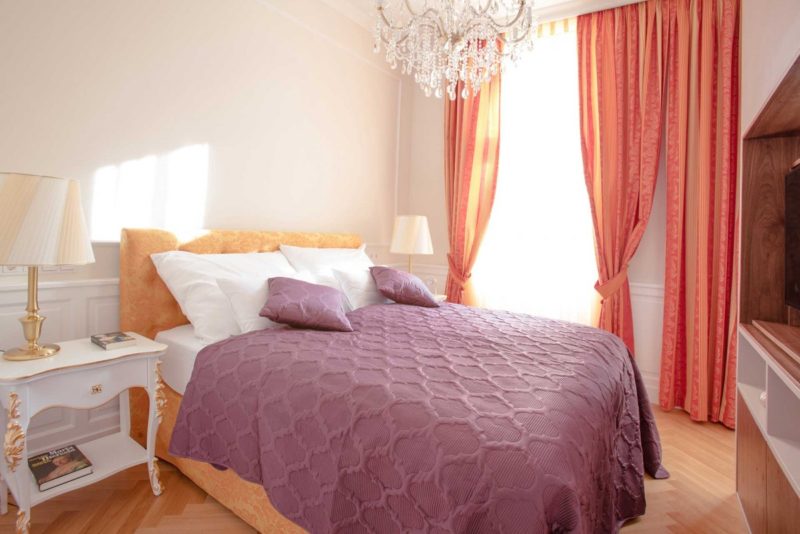How to soundproof a bed?
You are probably one of those people who asked this question to yourself or an online friend.

A noisy neighbor might be one of your reasons why you want the answer to this question.
Before going any deeper, we need to be clear as to what we mean by soundproof first.
We often hear soundproofing as a term applicable to rooms.
The noise is either prevented from leaving or entering a room by adding attachments to or modifying the walls.
But is it possible to soundproof a bed, or it’s all just a misconception?
Today, we will clear up our confusion about soundproof beds by defining a soundproof bed.
What Is A Soundproof Bed?
First of all, does a soundproof bed exist?
The plain and simple answer is no.
It is just physically unattainable to eliminate all noises in our surroundings.
The only thing we can do to be less disturbed is minimize those noises.
In terms of bed, the soundproof people mean is probably referring to bedframes that do not squeak.
There are commercially available beds with this feature, or you can consider helpful hacks to resolve this problem.
Some beds also come with enclosures that prevent outside noises from entering your bed space.
Techniques To Soundproof A Bed
Don’t worry; your way to a peaceful and quiet sleep does not end with debunking the existence of a soundproof bed.
As it is impossible to have a completely noise-free bed, you might consider some of the options listed below to resolve the noise problem:
So, how to soundproof a bed?
Option #1. Use sleeping earmuffs
Sleeping well is just as essential as eating healthy and exercising regularly.
The most affordable option to reduce noise around you while sleeping is buying sleeping earmuffs.
Aside from protecting you from all the unwanted noises, these are also designed to be comfortably worn.
Typically made from soft materials, these earmuffs are gentle to the skin.
Earmuffs are more comfortable compared to earplugs for sleeping.
Option #2. Buy sleeping pods
It sounds like we’re in some science fiction movies, right?
Because of the innovation in science in technology, this movie concept years ago finally became a reality at present.
Sleeping pods or nap pods are capsule-like beds that provide quality sleep while protecting one’s privacy.
These pods are not only built to be soundproof but heat and lightproof as well.
To improve comfort, sleeping pods include a heated mattress to keep you warm.
Programmed light effects matched with soothing music make you forget your other problems, not just the noise.
The price of sleeping pods varies depending upon the features included.
For a more convenient purchase, you can buy sleeping pods available online.
Option #3. Canopy beds
You might have problems sleeping in small spaces like pods or uncomfortable using earmuffs.
Instead of those, you can have a canopy bed to reduce outside noises.
Canopy beds are beds surrounded by curtains hanging from the ceiling or frames surrounding the bed.
The curtains of blankets around the bed block outside noises while providing you some private space for yourself.
Canopy beds have different types and are commonly made from wood or metal.
Oftentimes, four-poster beds are interchangeably used with canopy beds.
The difference lies in whether the top is covered or not.
Four-poster beds are composed of four columns on each corner of the bed, with the top portion left uncovered.
In canopy beds, materials or fabric cover the top portion of the bed completely enclosing your bed space.
While this difference is not a big deal for others, it is important to remember this, especially if your purpose is noise reduction.
Option #4. Soundproofing the bedroom
The most effective way to reduce noise surrounding your bed is to soundproof the entire room.
First, you need to detect the locations where these noises are likely to originate.
You can seal entry points of sound in your room like weather stripping tapes for the window.
For doors, you can add mass or seal the gap using a door sweep.
You can use soundproofing curtains or blankets to reduce noise coming from outside.
The thicker the material, the better the soundproofing quality of the curtains or blankets.
Some moving noise-insulating blankets or curtains are specifically designed to block outside noises.
Sometimes, the excessive noise comes from the sound produced downstairs or upstairs.
If this is your case, your choice is to soundproof the ceiling, floor, or both.
With the ceiling, you can request people upstairs to put thicker carpets on their floor.
This will minimize the noise created from footfalls.
You can install thicker carpet on your bedroom floor to minimize the noise coming from downstairs.
To Conclude
How to soundproof a bed?
You can’t eliminate all the noise problems surrounding your bed space.
However, you can do a handful of options to reduce the noise to a manageable level.
You can achieve a peaceful sleep by resolving the problem where you sleep or by making changes in your room.
That’s all about soundproofing a bed.
